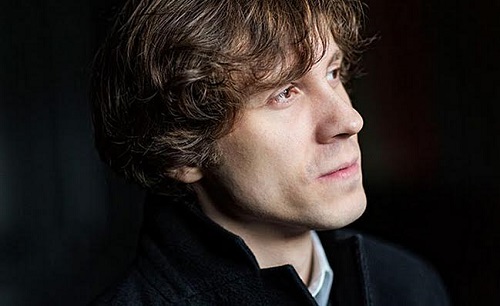 Canada Mozart, Beethoven, Schumann, Chopin: Rafal Blechacz (piano), Vancouver Playhouse, Vancouver, 22.4.2018. (GN)
Canada Mozart, Beethoven, Schumann, Chopin: Rafal Blechacz (piano), Vancouver Playhouse, Vancouver, 22.4.2018. (GN)

Mozart – Rondo in A minor K511; Sonata No.8 in A minor, K310
Beethoven – Sonata No.28 in A major Op.101
Schumann – Sonata in G minor Op.22 No.2
Chopin – Four Mazurkas Op.24; Polonaise No.6 in A flat major Op.5
Rafal Blechacz was the artist invited to celebrate the Vancouver Chopin Society’s twentieth anniversary gala, and he gave a splendid recital. The Polish pianist won every prize in the 2005 Warsaw Chopin Competition, and a more mature form of the same dazzling pianism was on display here, featuring a disarming level of tonal beauty and clarity in articulation. In the years since that event, Blechacz has smoothed out some of his youthful extremes and moved steadily towards the core of German masters; his latest CD for Deutsche Grammophon was of Bach. Yet he remains a pianist glowing in tonal splendor and romantic involvement, as evidenced here in his deeply-committed Mozart, Beethoven and Schumann. The luminosity and fluency of his playing cast a spell throughout, yet this was also playing of great sensitivity. Some attendees would have doubtlessly liked to hear more Chopin, but his blockbuster Polonaise No.6 and selection of finely-chiseled Mazurkas at the end affirmed the occasion in style.
It is no easy task to establish the serene flow of Mozart’s lovely Rondo K511 right at the beginning of a concert. Blechacz displayed all his beautiful trills and runs, and no lack of feeling, yet this seemed over-inflected in places – enjoyable, but still a bit of a warmup. The composer’s Sonata K.310 was the main event, and a substantial reading of the more romantic type came forth. Some Mozart sonatas cannot take a large emotional scale, but this one can. Blechacz found plenty of ardour and impassioned drive in the determined opening motif, amplifying the left-hand ostinato to give purpose. The push into the minor key modulations was involving, and the range of tone colour throughout the movement made for an exciting start. The Andante was given more brightly-lit hues than usual, but the pianist’s fineness of articulation and awareness of beauty made it enticing. The full Sturm und Drang implications were brought out in the finale which featured dazzling pianism and brought the work home with great élan. The interpretation was more dramatic than many, but Blechacz left no doubt as to the authenticity of his feeling.
The Beethoven and Schumann sonatas were, if anything, even finer. The Beethoven was imbued with a fine sense of discovery, negotiating the introduction and initial transition with uncommon insight and artfully separating structural lines to reveal great transparency thereafter. The coherence and control displayed in the opening movement was special, giving way to a Vivace of splendid architecture and rhythmic allure. The depth of feeling in the Adagio was a highlight too, featuring beautifully-spun, poetic playing, followed by a well-appointed finale that brought variety to the fugue. No one could question the stature of this reading: it had superb aesthetic and intellectual balance, and a tonal glow that few pianists could match.
The Schumann was just as impressive in both sonority and conviction, taking the composer’s extreme metronome markings very seriously, and hurtling from the gate with remarkable passion and virtuosity. But then the pianist found lovely lyrical repose to contrast with the frenzy: the opening movement felt fully fresh in Blechacz’s hands. The same beauty informed the Andantino. Following a Scherzo of character, the cleanness and strength of the finale – taken at breakneck speed – was riveting. This was a well-integrated performance that really captured Schumann’s ultra-romantic impulses.
The Chopin part of the recital may have been slight, starting from four pristinely-etched Mazurkas, but the Polonaise No.6 certainly put a seal on the event. It was stunning in its rhythmic address and sense of Polish feeling, yet it cultivated a beguiling ease in its more relaxed sections. That said, one might have been transported simply by the tonal weight and glow that Blechacz coaxed from his Steinway. The last time I recall this type of transcendental power was when Krystian Zimerman played the Ballades here a decade ago. Perhaps this is not a surprise: Blechacz and Zimerman have been close friends ever since the former’s Chopin victory. The encore was a beautifully-appointed Brahms Intermezzi Op.117 No.2.
Piano recitals do not come much finer than this. The post-concert reception had a nice variety – speeches, very young pianists playing Chopin and meetings with the artist. All of it served to honor the Vancouver Chopin Society’s founder, Iko Bylicki, and other long-standing board members who have helped make the organization an increasingly strong force in the city’s music.
Geoffrey Newman
Previously published in a slightly different form on http://www.vanclassicalmusic.com.